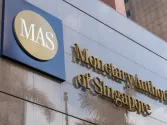
Vietnamese banks still suffer capital crunch despite dividend plan
State-owned banks can expect a mild capital boost of up to 30bps.
Despite plans by Vietnamese regulators to allow state-owned banks to retain dividends or pay out in shares, lenders still face a gaping capital shortage in the run-up to the Basel II implementation in 2020, according to Fitch Ratings.
Also read: Can Vietnamese banks plug their massive capital shortage ahead of Basel II?
Proposed by the central bank and pending approval from the country's legislative body, the plan enable state-owned banks to follow a practice already in place for private lenders.
"We estimate that the positive capital impact for Fitch-rated state-owned banks (Vietcombank and Vietinbank) will be up to 30bps, which is small relative to our estimated potential capital shortfall of up to 200bps, assuming they target an 8% Tier-1 capital ratio," Wee Siang Ng, analyst at Fitch Ratings said in a report.
Also read: Vietnamese banks' capital shortaflls trigger bond issuance frenzy
Banks in Vietnam still plug a $4.1b capital shortage, of which 90% is accounted for by state-owned banks. The total amount of capital required could be even higher if banks raise their allowance coverage to 5.0% of gross loans and Vietnam Asset Management Company special bonds, compared with 1.6% at year-end 2018.
"The lack of depth in the local capital markets and foreign ownership limits continue to constrain banks' ability to raise common equity, which Fitch views as the best form of loss-absorbing capital," added Ng. The situation is further aggravated as loan growth continues to outpace capital production.
Vietnam maintains a 30% blanket foreign-ownership limit for banks and 20% limit for a foreign investor deemed to have a strategic interest. Foreign ownership at Vietinbank is already at the 30% cap and for Vietcombank it is 23%.
"Unless the cap is lifted, we expect banks to issue Tier-2 debt to help meet minimum regulatory capital ratios," concluded Ng.






















 Advertise
Advertise








